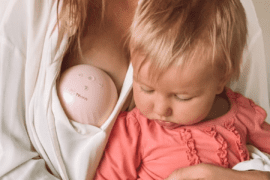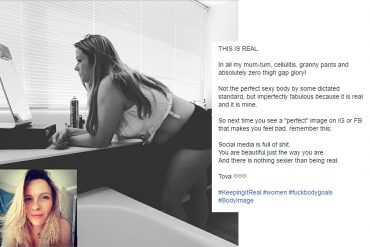I asked this mother how she knew her baby was getting no milk during her time at the breast (which is what happens during “non-nutritive sucking”). I could see the realization dawn in her eyes. Smiling, this mother admitted that she really didn’t know that. I told her that I always assume a baby nursing at breast is getting milk.
At that moment, this mother realized that second-guessing her baby had been counterproductive for them both. She understood that to fully resolve her baby’s weight-gain issues she had to trust her baby to know what she needed, when she needed it, and for how long. (Her baby was full term and healthy, so she could follow her baby’s lead with confidence.) When she made the decision to trust her baby, it became her baby’s job-not hers-to know when to nurse. While I watched these mental wheels turn, this mother visibly relaxed as she felt her burden lifted.
Who Needs This World of Hurt?
What does it mean for your baby to “use your breast as a pacifier”? When you think it through in terms of how breastfeeding works, it is actually total nonsense. But if a mother buys into the assumptions that underlie this advice, it opens her up to a world of hurt. Believing that she has to guard against her baby “using her” has the potential to undermine breastfeeding, her relationship with her baby, and indeed her whole outlook on motherhood. Who needs this kind of negative take on their baby? Even without it, new motherhood is challenging enough.
But if a mother buys into the assumptions that underlie this advice, it opens her up to a world of hurt. Believing that she has to guard against her baby “using her” has the potential to undermine breastfeeding, her relationship with her baby, and indeed her whole outlook on motherhood.
Where did this odd outlook come from? I’m guessing it stems from formula-feeding norms. After all, when babies are bottle-fed, overfeeding is a genuine risk. Milk from a bottle flows so fast and consistently that babies have little control over their milk intake. At the breast, on the other hand, due to the alternating fast-then-slow milk flow from letdowns, breastfeeding automatically teaches our babies healthy self-regulation. (For more on how breast and bottle affect risk of overfeeding and obesity, see THIS 2012 study.)
To prevent overfeeding during bottle-feeding, it may actually make sense to stop a feed before baby appears to be done and give him a breast substitute to suck on so that his appetite control mechanism has a chance to activate. (Giving a baby regular breaks from fast milk flow while being bottle-fed is one way to prevent overfeeding and is one aspect of the paced bottle-feeding described HERE). But even though this strategy may be good during bottle-feeding, it is definitely not good when breastfeeding.
Babies know what they need. A happy and satisfying breastfeeding relationship is built on a mother’s trust in her baby. Only in places where formula-feeding norms are still alive in the cultural memory could the “don’t let your baby use your breast as a pacifier” advice take root and gain traction. If we want to make our world more breastfeeding friendly, part of our job must be to discredit this kind of misguided advice.
Originally published HERE.
Nancy Mohrbacher, IBCLC, FILCA lives in Chicago and is a board-certified lactation consultant who has been helping breastfeeding families since 1982. Her resources for parents include the books Breastfeeding Made Simple (with Kathleen Kendall-Tackett), Working and Breastfeeding Made Simple, her tiny troubleshooting guide Breastfeeding Solutions, and its companion Breastfeeding Solutions app, which is available in the App Store and Google Play. Her YouTube channel has more than one million views, and make sure to follow Nancy on Facebook too.










